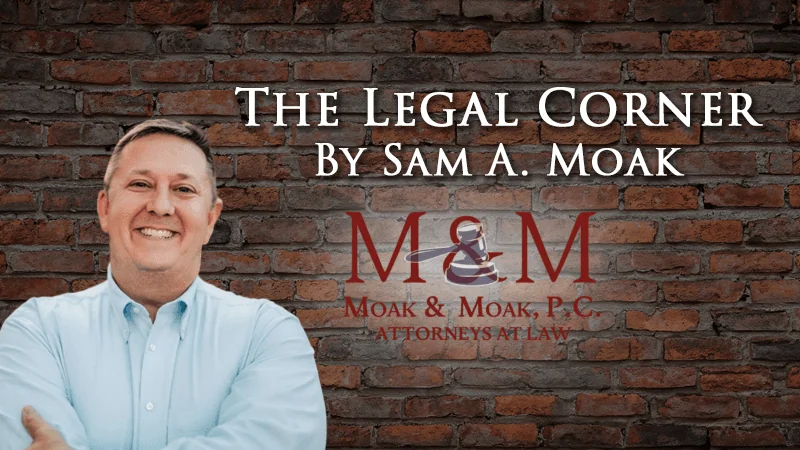The information in this column is not intended as legal advice but to provide a general understanding of the law. Any readers with a legal problem, including those whose questions are addressed here, should consult an attorney for advice on their particular circumstances.
Big Brother, Federal Government Regulation, is coming to residential real estate transactions. This is on the heals of the Corporate Transparency Act (discussed in an earlier column).
Issued on February 7, 2024, with a stated purpose of “combat[ing] and deter[ing] money laundering in the U.S. residential real estate sector by increasing transparency, the Residential Rule requires certain professionals, including attorneys in certain transactions, to file a report with FinCEN that provides a wealth of information about certain real estate transactions and the parties to those transactions.
FinCEN, as part of the rule-making process, invited public comments on the proposed rule until April 16, 2024. Only 624 comments were submitted and are currently under review. The Residential Rule will become effective one year after the final rule is published. As of today, I am not aware of the final rule being published.
While some of the information required under the Corporate Transparency Act (CTA) overlaps with the Residential Rule, there are some key differences between the two. First, the CTA applies to a broad range of transactions whereas Residential Rule transactions focus specifically on non-financed residential real estate transactions to certain legal entities and trusts. I interpret this to mean cash deals. Second, the Suspicious Activity Report (SAR) required by the CTA is replaced with a Real Estate Report, which is reported to be a streamlined version of the SAR. Third, the CTA beneficial ownership information focuses on broad money laundering trends and reports on the beneficial owners of certain legal entities (i.e., corporations, limited liability companies, etc); but the Real Estate Report provides both beneficial ownership information and real estate transactional information in a single report. Fourth, reports filed under CTA will be electronically stored in a separate database with separate access privileges from Real Estate Reports.
It has been widely accepted for quite sometime that one of the benefits of trust is that they are private. However, the Residential Rule will require disclosure of the settlor/grantee of the trust, trustee, and beneficiary of the trust.
Furthermore, the Residential Rule will apply to “residential real estate.” This is defined as (I) real property located in the United States containing a structure designed principally for occupancy by one to four families; (ii) vacant or unimproved land located in the United States zoned, or for which a permit has been issued, for the construction of a structure designed principally for occupancy by one to four families; or (iii) shares in a cooperative housing corporation.
Many communities, Huntsville included, are pushing to create Zoning. This makes one ponder “why?” We have long valued our privacy and property ownership. However, little by little it is being chipped away or worse, given up by posting our lives on social media. But I digress.
The American Bar Association has opposed this proposed Residential Rule and many other real estate affiliated organizations. Additionally, the Texas Disciplinary Rules of Professional Conduct Rule 1.05 and the American Bar Association Disciplinary Rule 106 prohibit decimation of confidential information. The rules already allow attorneys to reveal unprivileged information and require attorneys to reveal confidential information if a client is likely to commit a criminal or fraudulent act likely. So any argument the Residential Rule is required to prevent these transactions is bunk.
The proposed Residential Rule, if adopted, will become a final rule that could take effect as soon as next year if the Secretary is able to draft a final rule. Based on the number of comments received, it is likely that the rule may not be finalized until next year with a 2026 effective date. Either way, all comments have been received so it is now in FinCEN’s hands. This is yet another reason to VOTE! If the majority sits by and does nothing, then we will put folks in power that care nothing about our rights and freedoms. he elected will continue to infringe on our privacy and tax Americans into poverty. Our only hope is to elect representatives that want to cut government regulation and taxation.
Sam A. Moak is an attorney with the Huntsville law firm of Moak & Moak, P.C. He is licensed to practice in all fields of law by the Supreme Court of Texas, is a Member of the State Bar College, and is a member of the Real Estate, Probate and Trust Law Section of the State Bar of Texas. (936)295-6394 www.moakandmoak.com


